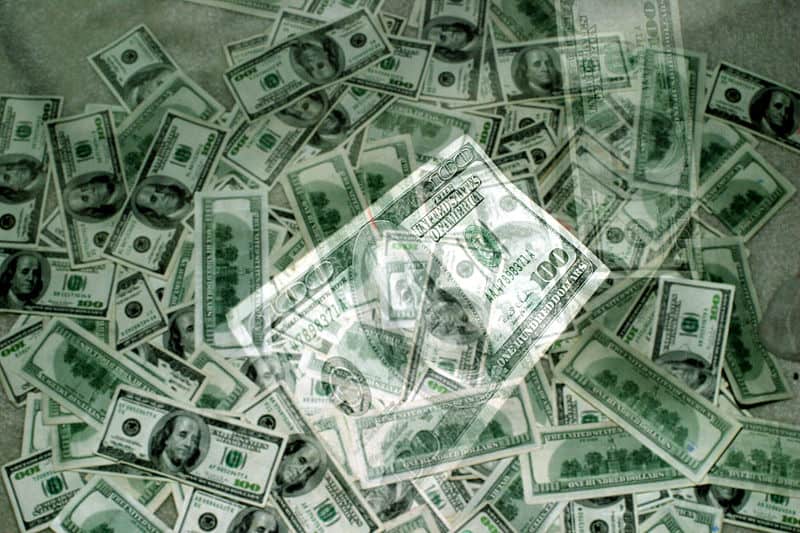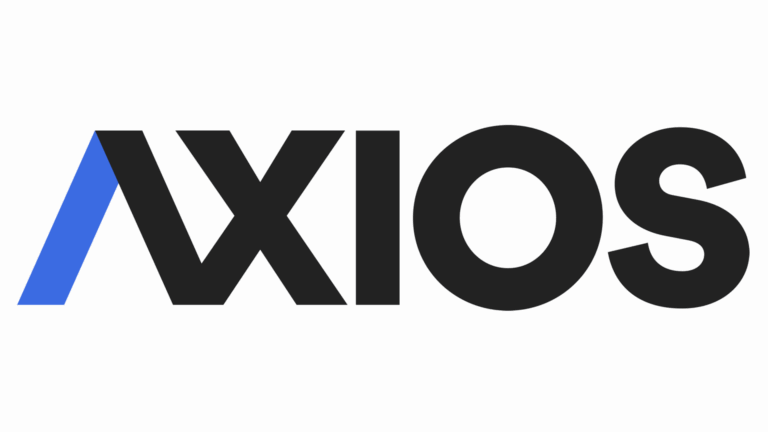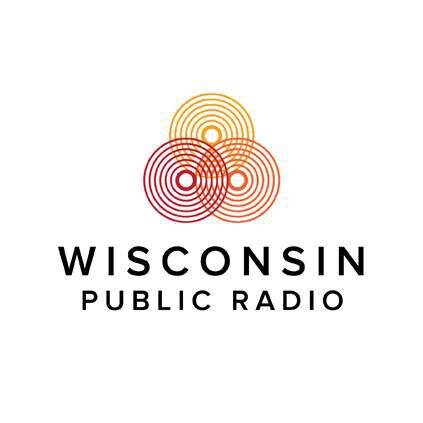How Eversource customers in New Hampshire unknowingly fund the Edison Electric Institute

Updated shortly after publication with additional comments from Eversource.
Eversource customers in New Hampshire are on the hook for nearly $190,000 the utility paid last year to the Edison Electric Institute, an obscure filing in the utility’s ongoing rate case reveals.
The Edison Electric Institute (EEI) is an industry association that represents the nation’s investor-owned electric utilities. A 2017 report by the Energy and Policy Institute documented how utility customers are forced to fund the EEI’s largely political agenda through hidden charges on their electric bills.
In April, Eversource included $189,876 it paid to EEI in 2018 on a list of “Above the Line” membership fees, dues, lobbying costs, and donations found in the docket for its first full rate case before the NH Public Utilities Commission (NH PUC) in a decade. In the world of utility ratemaking, the term “above the line” applies to expenses included in the rates paid by a utility’s customers.
The same list also included $16,721 that Eversource paid to the New Hampshire Business & Industry Association (NH BIA) last year, plus thousands of dollars in other payments to several local Chambers of Commerce and organizations like the New Hampshire Grocers Association and New Hampshire Lodging and Restaurant Association. Altogether, Eversource wants its customers to pay $284,222 to cover the costs of its 2018 payments to EEI, NHBIA, and other industry groups – and that’s just the tip of the iceberg.
In recent years, Eversource also sought to recover $574,000 in annual payments to the Edison Electric Institute (EEI) from its customers in Connecticut, and $417,219 from its customers in Massachusetts.
The NH PUC had already confirmed last September that Eversource’s New Hampshire division recovers a significant portion of its annual payments to EEI from its customers in the Granite State. PUC staff pointed to documents filed in Eversource’s (then called PSNH) last rate case in 2009 for confirmation. The documents from that 2009 rate case provided no real accounting of what EEI does with the annual payments that PSNH/Eversource recovers from its Granite State customers. State officials were basically asked to take the utility’s word for it that the money recovered from customers wasn’t going to lobbying, as required by PUC rules.
Eversource’s ongoing rate case provides an opportunity for the state officials charged with oversight of utility rates in New Hampshire to take a look under the hood, and determine how much money, if any, Eversource customers should have to pay each year to EEI and other industry associations. It’s also an opportunity to shine a light on the money Eversource pays to industry groups that often play a big role in energy policy debates in New Hampshire.
State lawmakers moved this year to strengthen restrictions on utilities recovering the costs of political activities from their customers
New Hampshire is one of a growing number of states where public officials and stakeholders are pushing for utilities to disclose more information about how industry groups like EEI spend ratepayers’ money. Any portion of a utility’s payments to its industry groups that’s not paid for by its customers is usually covered by the utility’s shareholders.
NH PUC rule 310.02 bars utilities, with a few exceptions, from recovering:
… in any manner, from any person other than other than the shareholders or other owners of such utility any direct or indirect expenditure by such utility for promotional, political or institutional advertising, or promotional, political or institutional activities.
The Energy and Policy Institute reached out to Eversource for comment on why the company believes its customers should pay for costs associated with the activities of EEI, NH BIA, and other industry groups. EPI also asked for details about any EEI-related costs that Eversource is not seeking to include in the rates paid by its customers.
Here is what William Hinkle, a media relations manager for Eversource, had to say about EEI:
The portion of our Edison Electric Institute dues that is attributable to lobbying has been excluded from our pending distribution rate review, just as it was excluded in our last rate review in 2009. We do not recover the costs of any promotional, political or institutional advertising or activities – including lobbying – from our customers through rates. In our current rate review filing, we seek recovery only of the portion of our EEI dues that provides services that directly benefit our customers. For example, EEI member companies have established a mutual assistance network that provides personnel and equipment to support significant restoration efforts. Additionally, EEI membership provides access to industry data, studies, publications and developments that support our efforts to provide safe, reliable electric service to our customers…
Hinkle also pointed to self-reported numbers from EEI as evidence that Eversource isn’t trying to include lobbying costs in the rates its customers pay:
According to the Edison Electric Institute, 13 percent of its dues are related to lobbying activities, so we have excluded $27,924 from the ongoing distribution rate review, which accounts for PSNH’s share of the company’s overall EEI dues.
Asked for details about how EEI allocated that 13 percent of its due between state and federal lobbying, and other promotional or political advertising and activities, Hinkle responded as follows:
While EEI indicates that 13 percent of our dues for their regular activities relates to lobbying, we do not have any additional information or specific knowledge about how these funds are further distributed within the organization.
Similarly, Hinkle said that customers should cover some of the costs of Eversource’s payments to the NH BIA, local chambers, and other industry groups because “these investments directly support the efforts of our business customers to spur economic development so that our state can continue to grow and thrive.” Hinkle said Eversource is not seeking to recover 65 percent of its NH BIA membership fees from its customers, because that portion of the membership fees “relate to activities such as public policy outreach.”
Not content with taking utilities’ word for it, earlier this year state lawmakers passed a bipartisan bill (SB 206) “excluding the cost of lobbying and political activity from the rates of public utilities.” The state senate approved the bill in a unanimous 24-0 vote. Republican Governor Chris Sununu signed the bill on June 13, after facing scrutiny for the campaign contributions he received from Eversource and other utilities during the 2018 election.
The way EEI classifies expenses “lacks transparency”
Brian Buckley, a staff attorney for the New Hampshire Office of the Consumer Advocate (OCA) offered testimony in support of SB 206 at a legislative hearing in March. The OCA is now participating in Eversource’s rate case before the NH PUC.
“First, the manner in which utility trade associations such as the Edison Electric Institute and American Gas Association classify expenses and activities lacks transparency,” according to Buckley’s testimony.
Buckley also shared his view that utility customers should pay for some EEI programs that they benefit from, such as the storm recovery mutual assistance program that Eversource’s Hinkle mentioned, with a major caveat.
“… but how AGA and EEI allot trade association dues between those activities and those that might relate to political activity, lobbying, or advocacy is obscure at best,” Buckley said.
Buckley said the bill would help empower the OCA to:
… speak with the authority of the legislature… when demanding an investor-owned utility carry the full burden of proof in demonstrating its trade association dues did not go, directly or indirectly, towards lobbying, issue advocacy, [or] other political activities.
He also pointed to recent moves in other states like California, Massachusetts, Missouri, and New York to disallow utilities from recovering any industry association dues from customers unless they meet that full burden of proof.
The California Public Utilities Commission recently disallowed Southern California Edison from recovering any of its EEI dues from customers in a decision that included the following determination:
SCE has failed to present supporting evidence which would enable us to determine how much EEI’s beneficial services should cost ratepayers. We find SCE has not met its burden to establish any portion of the EEI dues are recoverable from ratepayers.
Eversource should bring receipts to its rate case
Some information is available about how EEI and NH BIA spend money to influence energy policy in New Hampshire. Eversource’s ongoing rate case offers a rare chance for the NH PUC and other participants in the case to press the utility for any details it may have about who is paying for specific activities undertaken by these industry groups in recent years: utility ratepayers or shareholders?
Examples include:
- Since the start of 2018, EEI has paid for dozens of “We Stand for Energy” Facebook ads targeting New Hampshire that attacked bills to expand net metering programs to fuel the growth of distributed solar and other forms of renewable energy. Each of the related ad entries found in Facebook’s online ad library was purchased for “>$100,” making it impossible to determine exactly how much EEI paid for the ads. Some of the ads did not disclose EEI as the buyer, and were removed by Facebook. Other Facebook ads paid for by EEI that targeted New Hampshire and other states may fall into the category of promotional advertisements that utilities are not supposed to recover from customers under NH PUC rules.
- EEI paid $21,000 last year to William O’Brien, the former Republican New Hampshire Speaker who is now running for U.S. Senate, for lobbying last year. O’Brien joined special interest groups like the American Legislative Exchange Council, Americans for Prosperity, and the Consumers Energy Alliance that have received funding from EEI in a campaign to oppose last year’s net metering bill.
- HBW Resources, the lobbying firm that runs the Consumer Energy Alliance (CEA), received $10,000 from EEI in 2017. CEA, which counts EEI among its members, was an intervenor in the 2016-2017 case where the NH PUC concluded that currently “there is little to no evidence of any significant cost-shifting” from net metering, consistent with what most studies have shown and the public believes, and contrary to the claims of CEA, EEI and Eversource.
- NH BIA sent a letter in May asking Governor Sununu to veto this year’s net metering bill. William Quinlan, the president of Eversource’s New Hampshire division, serves on the group’s board of directors. NH BIA also hosted an Energy Symposium in December where Governor Sununu railed against “subsidies” for renewable energy. NH BIA brought in Chris Hickling, a self-described “recovering lobbyist” who now works as EEI’s director of customer management, from D.C. to speak at the event.
- EEI gave $15,000 to the Concord-based Josiah Bartlett Center for Public Policy in 2017. The group has been an outspoken opponent of bills to expand net metering in New Hampshire. James Sununu, one of the governor’s brothers, is currently listed as the chairman of the group’s board of directors. The center has also published articles and reports by Michael Sununu, another of the governor’s brothers, attacking climate science. (Note:EEI helped to launch the era of industry-funded climate denial back in the 1990s and early 2000s)
- EEI has paid millions of dollars to the Virginia-based law firm Hunton & Williams, which operated the Utility Air Regulatory Group that for over 50 years fought to weaken Clean Air Act limits on power plant pollution. Eversource Energy was a member of UARG, which disbanded earlier this year amid a high profile investigation by members of Congress. Eversource Energy reportedly left UARG sometime after 2017.
- John Judge, the CEO of Eversource Energy and chairman of Eversource’s New Hampshire division, serves on EEI’s board of directors. In 2018, the EEI board received a report-back from Maslansky + Partners, which had done polling to test messages that utilities could use to push back against their customers’ demand for 100% renewable energy (spoiler alert: the messages failed to persuade customers). The same firm has designed other communications playbooks for EEI members to use on their customers, including messaging to use during rate cases.
While Eversource (then PSNH) faced relatively little scrutiny of its recovery of EEI dues from customers during its 2009 rate case, there is precedent for the NH PUC to disallow the utility from recovering the costs of specific EEI programs it finds do not benefit customers.
In 1982, the NH PUC disallowed PSNH from recovering costs related to EEI’s controversial proposal to make customers of utilities pay for the cost of cleaning up operations after the nuclear accident at Three Mile Island. The PUC also denied PSNH’s request that year to recover $43,313 in EEI advertising costs from customers.
Unitil and Liberty Utilities are also members of EEI, but Eversource is by far the largest EEI member in the state. Unitil reported “no membership fees, dues, lobbying expenses, or donations of $5,000 or more charged above the line” in a 2016 rate case filing with the NH PUC. Liberty Utilities identified only one above the line expense that fell within this category in a rate case filing this year, a $12,500 payment to Arco LLC, a company that provides software to help electric and gas companies manage repair efforts.
Top image by revisorweb from Wikipedia Commons. Creative Commons Attribution-ShareAlike 3.0 Unported License



